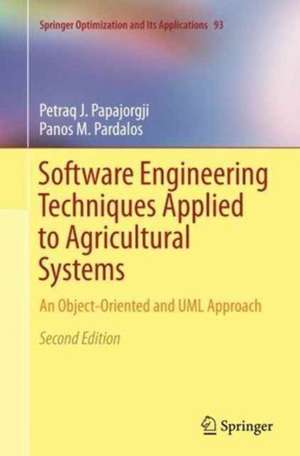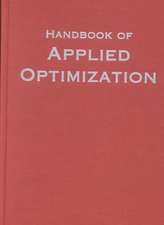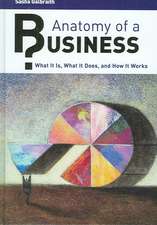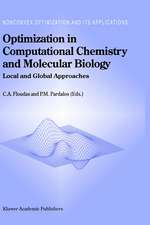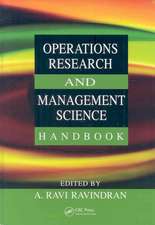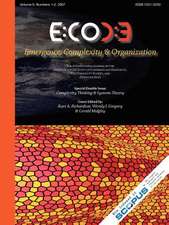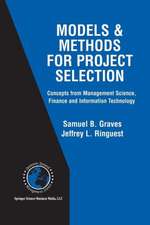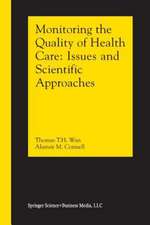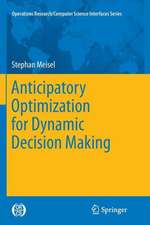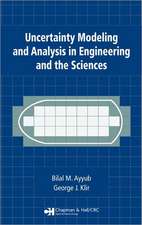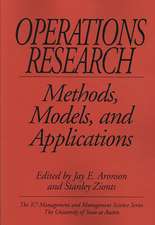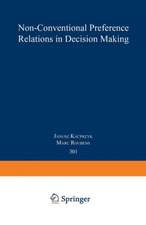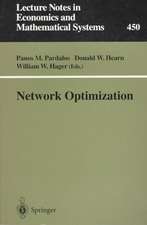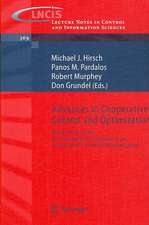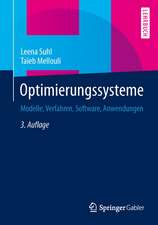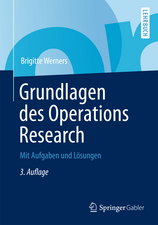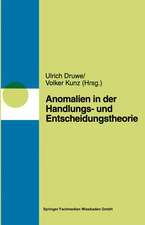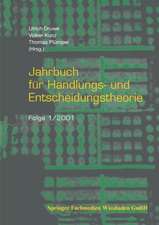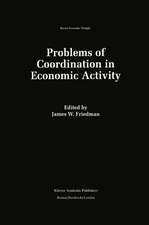Software Engineering Techniques Applied to Agricultural Systems: An Object-Oriented and UML Approach: Springer Optimization and Its Applications, cartea 93
Autor Petraq J. Papajorgji, Panos M. Pardalosen Limba Engleză Paperback – 17 sep 2016
This second edition includes: a new chapter on Object Constraint Language (OCL), a new section dedicated to the Model-VIEW-Controller (MVC) design pattern, new chapters presenting details of two MDA-based tools – the Virtual Enterprise and Olivia Nova and a new chapter with exercises on conceptual modeling. It may be highly useful to undergraduate and graduate students as the first edition has proven to be a useful supplementary textbook for courses in mathematical programming in agriculture, ecology, information technology, agricultural operations research methods, agronomy and soil science and applied mathematical modeling. The book has broad appeal for anyone involved in software development projects in agriculture and to researchers in general who are interested in modeling complex systems.
From the reviews of the first edition:
"The book will be useful for those interested in gaining a quick understanding of current software development techniques and how they are applied in practice... this is a good introductory text on the application of OOAD, UML and design patters to the creation of agricultural systems. It is technically sound and well written."
—Computing Reviews, September 2006
| Toate formatele și edițiile | Preț | Express |
|---|---|---|
| Paperback (1) | 562.79 lei 38-44 zile | |
| Springer Us – 17 sep 2016 | 562.79 lei 38-44 zile | |
| Hardback (1) | 647.92 lei 6-8 săpt. | |
| Springer Us – 10 iul 2014 | 647.92 lei 6-8 săpt. |
Din seria Springer Optimization and Its Applications
- 15%
 Preț: 642.00 lei
Preț: 642.00 lei - 15%
 Preț: 664.61 lei
Preț: 664.61 lei - 18%
 Preț: 961.55 lei
Preț: 961.55 lei - 17%
 Preț: 360.80 lei
Preț: 360.80 lei - 13%
 Preț: 458.09 lei
Preț: 458.09 lei -
 Preț: 336.80 lei
Preț: 336.80 lei - 18%
 Preț: 787.91 lei
Preț: 787.91 lei - 17%
 Preț: 397.79 lei
Preț: 397.79 lei - 23%
 Preț: 644.67 lei
Preț: 644.67 lei - 8%
 Preț: 337.38 lei
Preț: 337.38 lei - 18%
 Preț: 1133.30 lei
Preț: 1133.30 lei - 15%
 Preț: 646.43 lei
Preț: 646.43 lei - 15%
 Preț: 647.40 lei
Preț: 647.40 lei -
 Preț: 400.47 lei
Preț: 400.47 lei -
 Preț: 379.86 lei
Preț: 379.86 lei -
 Preț: 383.90 lei
Preț: 383.90 lei -
 Preț: 388.48 lei
Preț: 388.48 lei -
 Preț: 546.26 lei
Preț: 546.26 lei - 15%
 Preț: 647.40 lei
Preț: 647.40 lei -
 Preț: 390.25 lei
Preț: 390.25 lei - 15%
 Preț: 649.87 lei
Preț: 649.87 lei - 24%
 Preț: 611.56 lei
Preț: 611.56 lei - 18%
 Preț: 972.62 lei
Preț: 972.62 lei - 20%
 Preț: 585.92 lei
Preț: 585.92 lei - 15%
 Preț: 710.09 lei
Preț: 710.09 lei - 18%
 Preț: 742.61 lei
Preț: 742.61 lei - 15%
 Preț: 658.22 lei
Preț: 658.22 lei - 15%
 Preț: 659.02 lei
Preț: 659.02 lei - 18%
 Preț: 745.15 lei
Preț: 745.15 lei - 15%
 Preț: 705.34 lei
Preț: 705.34 lei
Preț: 562.79 lei
Preț vechi: 703.49 lei
-20% Nou
Puncte Express: 844
Preț estimativ în valută:
107.70€ • 116.95$ • 90.47£
107.70€ • 116.95$ • 90.47£
Carte tipărită la comandă
Livrare economică 18-24 aprilie
Preluare comenzi: 021 569.72.76
Specificații
ISBN-13: 9781489979032
ISBN-10: 1489979034
Pagini: 318
Ilustrații: XVII, 301 p. 239 illus., 89 illus. in color.
Dimensiuni: 155 x 235 mm
Ediția:Softcover reprint of the original 2nd ed. 2014
Editura: Springer Us
Colecția Springer
Seria Springer Optimization and Its Applications
Locul publicării:New York, NY, United States
ISBN-10: 1489979034
Pagini: 318
Ilustrații: XVII, 301 p. 239 illus., 89 illus. in color.
Dimensiuni: 155 x 235 mm
Ediția:Softcover reprint of the original 2nd ed. 2014
Editura: Springer Us
Colecția Springer
Seria Springer Optimization and Its Applications
Locul publicării:New York, NY, United States
Cuprins
Preface to the Second Edition.- Preface to the First Edition.- Part I. Concepts and Notations.- 1. Programming Paradigms.- 2. Basic Principles of the Object-Oriented Paradigm.- 3. Object-Oriented Concepts and Their UML Notation.- 4. Relationships.- 5. Use Cases and Actors.- 6. UML Diagrams.- 7. Design Patterns.- 8. Exercises.- 9. The Object Constraint Language (OCL).- 10. The Model Driven Architecture (MDA) Approach.- Part II. Applications.- 11. The Kraalingen Approach to Crop Simulation.- 12. The Plug and Play Architecture.- 13. Soil Water-Balance and Irrigation-Scheduling Models: a Case Study.- 14. Distributed Models.- 15. MDA with Oliva Nova.- 16. Answers.- Glossary.- References.
Textul de pe ultima copertă
Software Engineering Techniques Applied to Agricultural Systems presents cutting-edge software engineering techniques for designing and implementing better agricultural software systems based on the object-oriented paradigm and the Unified Modeling Language (UML). The focus is on the presentation of rigorous step-by-step approaches for modeling flexible agricultural and environmental systems, starting with a conceptual diagram representing elements of the system and their relationships. Furthermore, diagrams such as sequential and collaboration diagrams are used to explain the dynamic and static aspects of the software system.
This second edition includes: a new chapter on Object Constraint Language (OCL), a new section dedicated to the Model-VIEW-Controller (MVC) design pattern, new chapters presenting details of two MDA-based tools – the Virtual Enterprise and Olivia Nova, and a new chapter with exercises on conceptual modeling. It may be highly useful to undergraduate and graduate students as the first edition has proven to be a useful supplementary textbook for courses in mathematical programming in agriculture, ecology, information technology, agricultural operations research methods, agronomy and soil science, and applied mathematical modeling. The book has broad appeal for anyone involved in software development projects in agriculture and to researchers in general who are interested in modeling complex systems.
From the reviews of the first edition:
"The book will be useful for those interested in gaining a quick understanding of current software development techniques, and how they are applied in practice... this is a good introductory text on the application of OOAD, UML, and design patters to the creation of agricultural systems. It is technically sound and well written."
—Computing Reviews, September 2006
This second edition includes: a new chapter on Object Constraint Language (OCL), a new section dedicated to the Model-VIEW-Controller (MVC) design pattern, new chapters presenting details of two MDA-based tools – the Virtual Enterprise and Olivia Nova, and a new chapter with exercises on conceptual modeling. It may be highly useful to undergraduate and graduate students as the first edition has proven to be a useful supplementary textbook for courses in mathematical programming in agriculture, ecology, information technology, agricultural operations research methods, agronomy and soil science, and applied mathematical modeling. The book has broad appeal for anyone involved in software development projects in agriculture and to researchers in general who are interested in modeling complex systems.
From the reviews of the first edition:
"The book will be useful for those interested in gaining a quick understanding of current software development techniques, and how they are applied in practice... this is a good introductory text on the application of OOAD, UML, and design patters to the creation of agricultural systems. It is technically sound and well written."
—Computing Reviews, September 2006
Caracteristici
Presents a rigorous approach to the design and development of complex and flexible agricultural and environmental systems Provides an introduction to object-oriented modeling with applications tailored for students and researchers in agricultural and environmental fields This second edition includes three new chapters as well as newly developed exercise sets at the end of each chapter Can serve as a strong supplementary text for courses focusing on mathematical programming in agriculture, agricultural operations research methods, analysis of agricultural production, agronomy and soil science or applied mathematical modeling Includes supplementary material: sn.pub/extras
